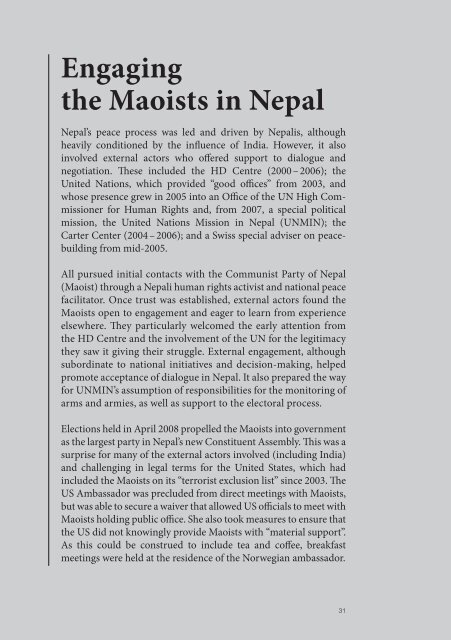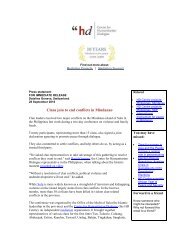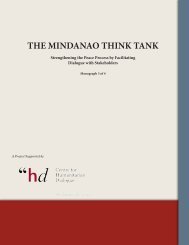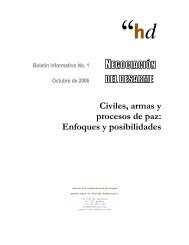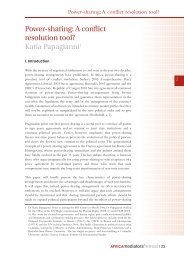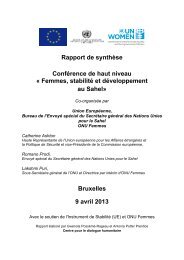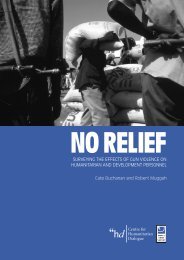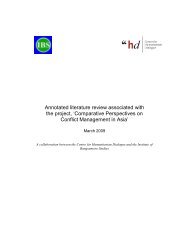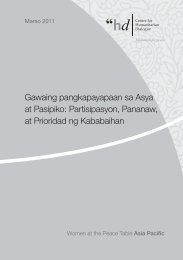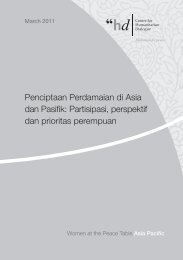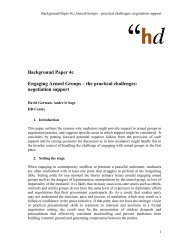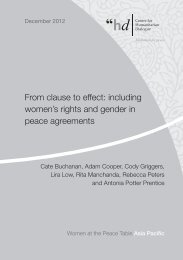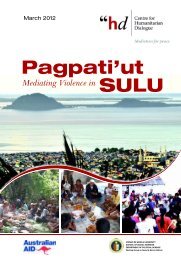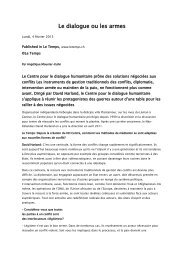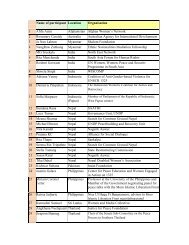Engaging with armed groups - Centre for Humanitarian Dialogue
Engaging with armed groups - Centre for Humanitarian Dialogue
Engaging with armed groups - Centre for Humanitarian Dialogue
- No tags were found...
Create successful ePaper yourself
Turn your PDF publications into a flip-book with our unique Google optimized e-Paper software.
<strong>Engaging</strong>the Maoists in NepalNepal’s peace process was led and driven by Nepalis, althoughheavily conditioned by the influence of India. However, it alsoinvolved external actors who offered support to dialogue andnegotiation. These included the HD <strong>Centre</strong> (2000 – 2006); theUnited Nations, which provided “good offices” from 2003, andwhose presence grew in 2005 into an Office of the UN High Commissioner<strong>for</strong> Human Rights and, from 2007, a special politicalmission, the United Nations Mission in Nepal (UNMIN); theCarter Center (2004 – 2006); and a Swiss special adviser on peacebuildingfrom mid-2005.All pursued initial contacts <strong>with</strong> the Communist Party of Nepal(Maoist) through a Nepali human rights activist and national peacefacilitator. Once trust was established, external actors found theMaoists open to engagement and eager to learn from experienceelsewhere. They particularly welcomed the early attention fromthe HD <strong>Centre</strong> and the involvement of the UN <strong>for</strong> the legitimacythey saw it giving their struggle. External engagement, althoughsubordinate to national initiatives and decision-making, helpedpromote acceptance of dialogue in Nepal. It also prepared the way<strong>for</strong> UNMIN’s assumption of responsibilities <strong>for</strong> the monitoring ofarms and armies, as well as support to the electoral process.Elections held in April 2008 propelled the Maoists into governmentas the largest party in Nepal’s new Constituent Assembly. This was asurprise <strong>for</strong> many of the external actors involved (including India)and challenging in legal terms <strong>for</strong> the United States, which hadincluded the Maoists on its “terrorist exclusion list” since 2003. TheUS Ambassador was precluded from direct meetings <strong>with</strong> Maoists,but was able to secure a waiver that allowed US officials to meet <strong>with</strong>Maoists holding public office. She also took measures to ensure thatthe US did not knowingly provide Maoists <strong>with</strong> “material support”.As this could be construed to include tea and coffee, breakfastmeetings were held at the residence of the Norwegian ambassador.31


